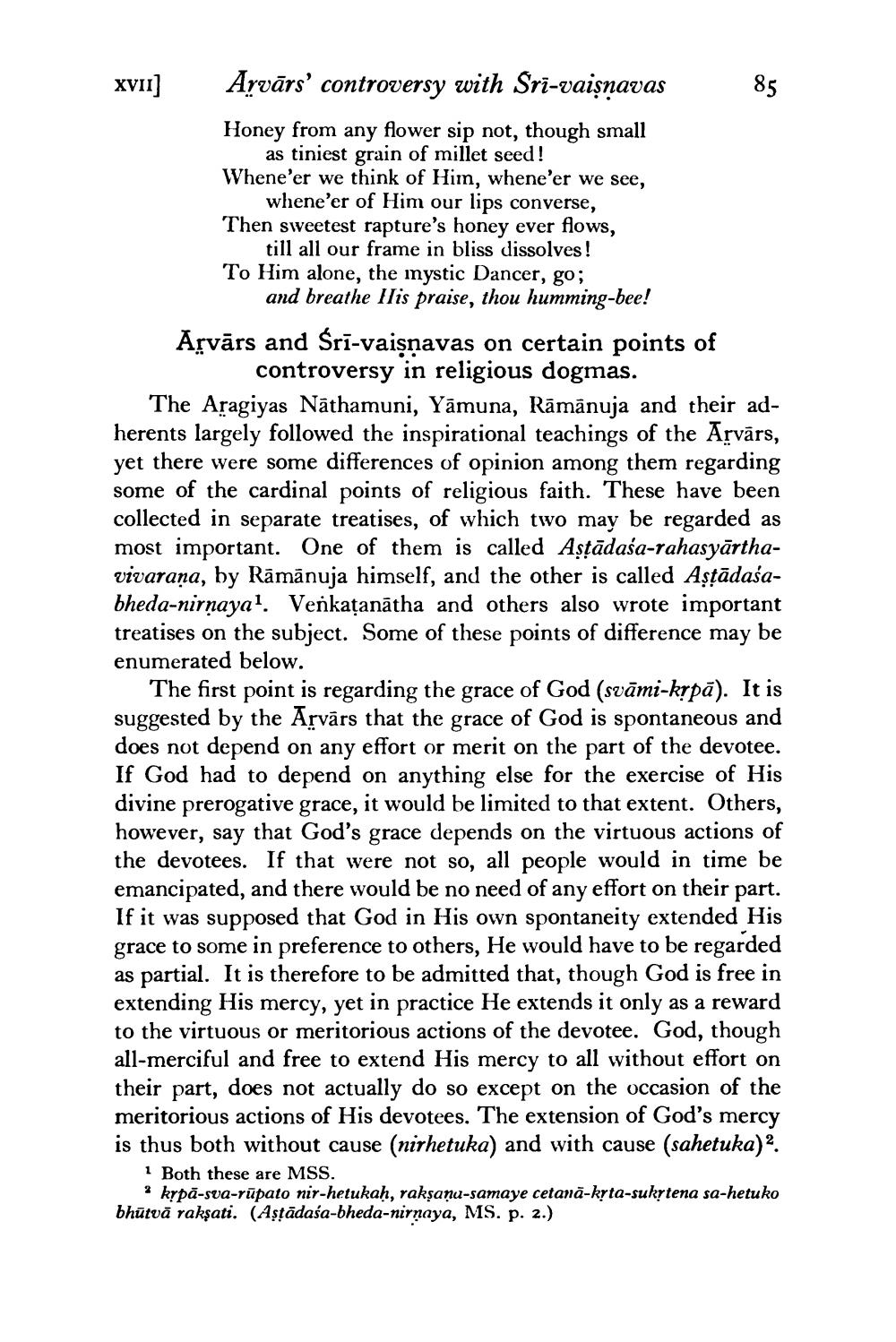________________
XVII] Arvārs' controversy with Sri-vaiṣṇavas
Honey from any flower sip not, though small as tiniest grain of millet seed! Whene'er we think of Him, whene'er we see, whene'er of Him our lips converse, Then sweetest rapture's honey ever flows, till all our frame in bliss dissolves! To Him alone, the mystic Dancer, go; and breathe His praise, thou humming-bee!
Arvārs and Śrī-vaiṣṇavas on certain points of controversy in religious dogmas.
85
The Aragiyas Nathamuni, Yamuna, Rāmānuja and their adherents largely followed the inspirational teachings of the Arvārs, yet there were some differences of opinion among them regarding some of the cardinal points of religious faith. These have been collected in separate treatises, of which two may be regarded as most important. One of them is called Aṣṭādaśa-rahasyārthavivaraṇa, by Rāmānuja himself, and the other is called Aṣṭādasabheda-nirnaya1. Venkaṭanatha and others also wrote important treatises on the subject. Some of these points of difference may be enumerated below.
The first point is regarding the grace of God (svāmi-kṛpā). It is suggested by the Arvars that the grace of God is spontaneous and does not depend on any effort or merit on the part of the devotee. If God had to depend on anything else for the exercise of His divine prerogative grace, it would be limited to that extent. Others, however, say that God's grace depends on the virtuous actions of the devotees. If that were not so, all people would in time be emancipated, and there would be no need of any effort on their part. If it was supposed that God in His own spontaneity extended His grace to some in preference to others, He would have to be regarded as partial. It is therefore to be admitted that, though God is free in extending His mercy, yet in practice He extends it only as a reward to the virtuous or meritorious actions of the devotee. God, though all-merciful and free to extend His mercy to all without effort on their part, does not actually do so except on the occasion of the meritorious actions of His devotees. The extension of God's mercy is thus both without cause (nirhetuka) and with cause (sahetuka)2.
1 Both these are MSS.
2 kṛpā-sva-rūpato nir-hetukaḥ, rakṣaṇa-samaye cetanā-kṛta-sukṛtena sa-hetuko bhūtvā rakṣati. (Aṣṭādaśa-bheda-nirnaya, MS. p. 2.)




